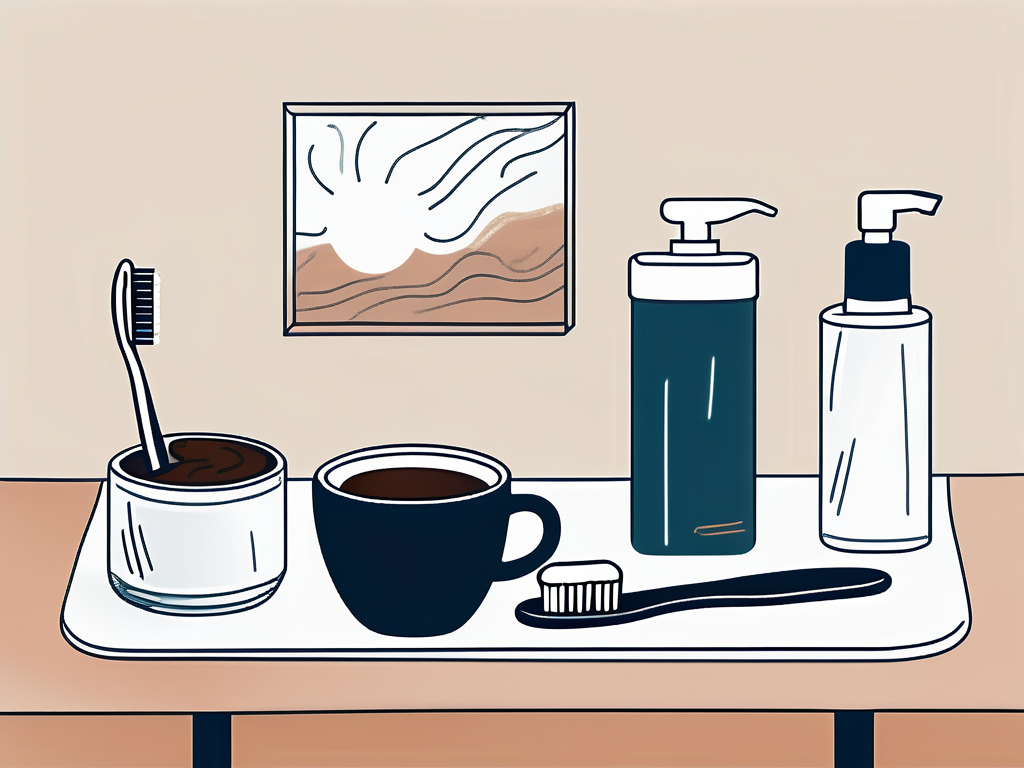Mouth guards are essential devices for protecting teeth from nighttime grinding and clenching. However, many individuals fail to realize the importance of proper maintenance and care for their mouth guard. In this article, we will explore the common mistakes in mouth guard care and provide effective strategies to avoid them. By understanding the significance of mouth guard maintenance and implementing best practices, you can extend the lifespan of your mouth guard and maintain optimal oral health.
Understanding the Importance of Mouth Guard Maintenance
Before delving into the specific mistakes to avoid, it is crucial to recognize the role mouth guards play in oral health. Mouth guards, also known as occlusal splints or dental splints, act as a protective barrier between the upper and lower teeth. They help alleviate the excessive pressure and prevent tooth damage that may result from teeth grinding or clenching, also known as bruxism.

However, simply wearing a mouth guard is not enough to ensure its effectiveness. Regular maintenance and care are vital to preserve the functionality and integrity of the device over time.
The Role of Mouth Guards in Oral Health
Mouth guards serve as a valuable tool for safeguarding your teeth and jaw from the harmful effects of bruxism. By preventing wear and tear on your natural teeth, they help maintain the alignment and integrity of your dental arch. Additionally, mouth guards can alleviate the symptoms associated with bruxism, such as headaches, jaw pain, and tooth sensitivity. Therefore, taking proper care of your mouth guard is crucial for ensuring its continued effectiveness in protecting your oral health.
Why Proper Mouth Guard Care is Essential
Proper care of your mouth guard not only prolongs its lifespan but also maintains its functionality. By neglecting the necessary maintenance steps, you risk compromising the effectiveness of the device and potentially causing harm to your teeth.
One important aspect of mouth guard care is cleaning. After each use, it is essential to clean your mouth guard thoroughly. Use a soft toothbrush and non-abrasive toothpaste to gently brush the guard, removing any debris or bacteria that may have accumulated. Rinse it thoroughly with cool water before storing it in its case. Avoid using hot water, as it can warp the mouth guard and affect its fit.
Another crucial aspect of mouth guard maintenance is storage. When not in use, always store your mouth guard in its designated case. This will protect it from damage and prevent it from being exposed to bacteria or other contaminants. Avoid leaving your mouth guard on the bathroom sink or countertop, as it can easily get knocked over or misplaced.
Identifying Common Mouth Guard Care Mistakes
Recognizing the mistakes individuals often make when caring for their mouth guard is essential for preventing any potential issues. By being aware of these mistakes, you can take proactive steps to avoid them.

However, it's important to delve deeper into the topic and explore additional aspects of mouth guard care that are often overlooked. Let's take a closer look at some other crucial factors to consider:
Improper Cleaning Techniques
One common mistake is using abrasive toothpaste or brushes on the mouth guard. Harsh cleaning agents can scratch or damage the surface of the device, compromising its fit and effectiveness. Instead, use a non-abrasive toothpaste and a soft toothbrush to gently clean the mouth guard.
Moreover, it's worth mentioning that soaking the mouth guard in a denture cleaning solution can be beneficial. This helps to eliminate any stubborn stains or bacteria that may have accumulated over time.
Inadequate Storage Practices
Improper storage is another common mistake that can harm your mouth guard. Leaving the device exposed on a bathroom countertop or in direct sunlight can lead to warping, discoloration, or bacterial growth. Instead, store the mouth guard in a clean and ventilated case specifically designed for this purpose.
Furthermore, it's crucial to highlight the importance of regular cleaning of the storage case itself. Neglecting to clean the case can result in the transfer of bacteria and germs onto the mouth guard, defeating the purpose of proper care.
Infrequent Replacement of Mouth Guards
Many individuals make the mistake of using their mouth guard for an extended period without replacement. Over time, mouth guards can become worn out, lose their fit, and become less effective in protecting your teeth. It is recommended to replace your mouth guard every 6-12 months, or as advised by your dental professional.
Additionally, it's worth mentioning that certain lifestyle factors can impact the lifespan of your mouth guard. For instance, individuals who grind their teeth more vigorously may need to replace their mouth guard more frequently.
By taking into account these often overlooked aspects of mouth guard care, you can ensure that your device remains in optimal condition, providing you with the necessary protection for your teeth and overall oral health. Remember, a little extra attention to detail goes a long way in maintaining the longevity and effectiveness of your mouth guard.
Effective Strategies for Mouth Guard Maintenance
Now that we have identified the common mistakes to avoid, let's explore some effective strategies for maintaining your mouth guard in optimal condition.

Choosing the Right Cleaning Solutions
When it comes to cleaning your mouth guard, it is essential to use the appropriate cleaning solutions. Avoid using harsh chemicals or cleaners that may damage the device. Instead, opt for mild soap, non-abrasive toothpaste, or specific cleaning solutions recommended by your dental professional.
Furthermore, consider using effervescent cleaning tablets specially designed for mouth guards. These tablets can efficiently remove plaque and bacteria, leaving your mouth guard fresh and clean.
It is important to note that not all cleaning solutions are suitable for all types of mouth guards. Some mouth guards, such as those made of soft materials, may require a gentler cleaning solution to prevent damage.
Establishing a Regular Cleaning Routine
Consistency is key when it comes to mouth guard care. Establishing a regular cleaning routine helps ensure the longevity and cleanliness of your mouth guard. After each use, take the time to thoroughly clean the device using mild soap and water. Gently scrub all surfaces, paying attention to hard-to-reach areas.
In addition to daily cleaning, it is recommended to perform a deeper cleaning at least once a week. Use cleaning tablets or a mixture of water and vinegar to soak the mouth guard for a few minutes. This process helps eliminate stubborn stains, bacteria, and plaque.
Remember, the longer you go without cleaning your mouth guard, the more buildup of bacteria and plaque can occur. Regular cleaning not only helps maintain the hygiene of your mouth guard but also ensures that it remains comfortable to wear.
Proper Storage and Handling of Mouth Guards
Correct storage and handling practices are crucial for maintaining the integrity of your mouth guard. Always store the device in a clean and dry case specifically designed for mouth guard storage. Avoid storing it in areas with high humidity to prevent mold growth.
When handling the mouth guard, make sure your hands are clean and dry to avoid transferring bacteria or dirt onto the device. Additionally, refrain from bending or twisting the mouth guard excessively, as this can cause deformation and compromise its effectiveness.
It is worth noting that some mouth guards may come with specific storage instructions from the manufacturer. Always follow these instructions to ensure the longevity and effectiveness of your mouth guard.
By implementing these effective strategies for mouth guard maintenance, you can prolong the lifespan of your device and ensure its optimal performance. Remember, a well-maintained mouth guard not only protects your teeth but also promotes overall oral health.
When to Replace Your Mouth Guard
Knowing when to replace your mouth guard is essential for ensuring continued protection of your teeth and optimal oral health.
Signs of Wear and Tear
Regularly inspect your mouth guard for any signs of wear and tear. Cracks, thinning, rough surfaces, or visible damage indicate that your mouth guard may no longer provide adequate protection. If you notice any of these signs, it is time to replace your mouth guard.
Understanding the Lifespan of a Mouth Guard
The lifespan of a mouth guard can vary depending on factors such as usage, bruxism severity, and the materials used in its construction. On average, mouth guards can last between 6-12 months.
Regular Check-ups for Optimal Mouth Guard Function
Your dental professional will evaluate the fit, effectiveness, and condition of your mouth guard during regular check-ups. They can identify any potential issues or signs of deterioration early on and recommend suitable actions to maintain optimal mouth guard function.
Seeking Professional Advice for Mouth Guard Care
If you have any concerns or questions regarding the care and maintenance of your mouth guard. They can provide personalized advice based on your specific needs and help you avoid common mistakes that may compromise the effectiveness and lifespan of your mouth guard.
By understanding the common mistakes in mouth guard care and implementing effective strategies for maintenance, you can ensure the longevity and effectiveness of your mouth guard. Prioritize regular cleaning, proper storage, and monitoring the condition of your mouth guard to maintain optimal oral health and protect your teeth from the harmful effects of bruxism.













